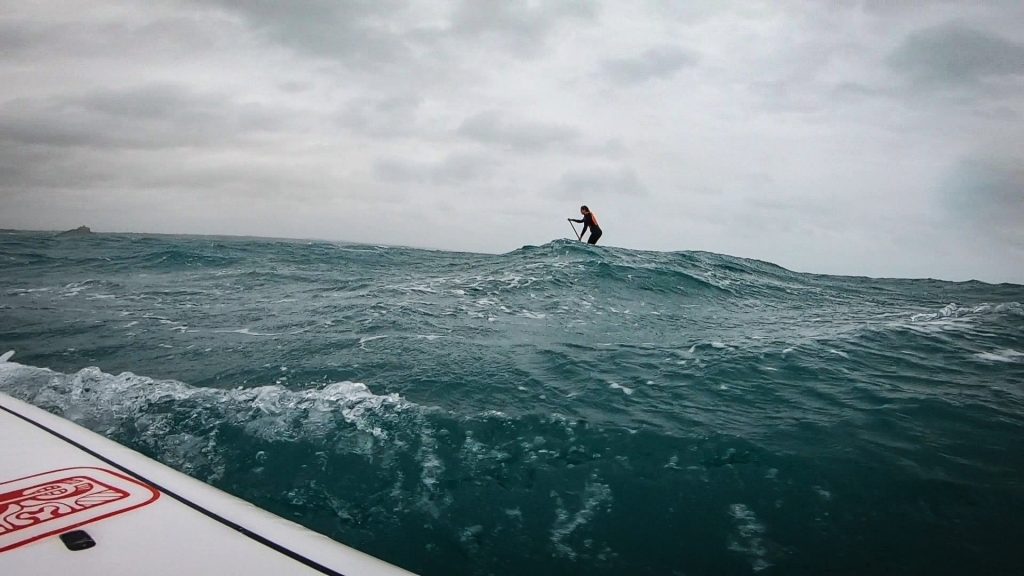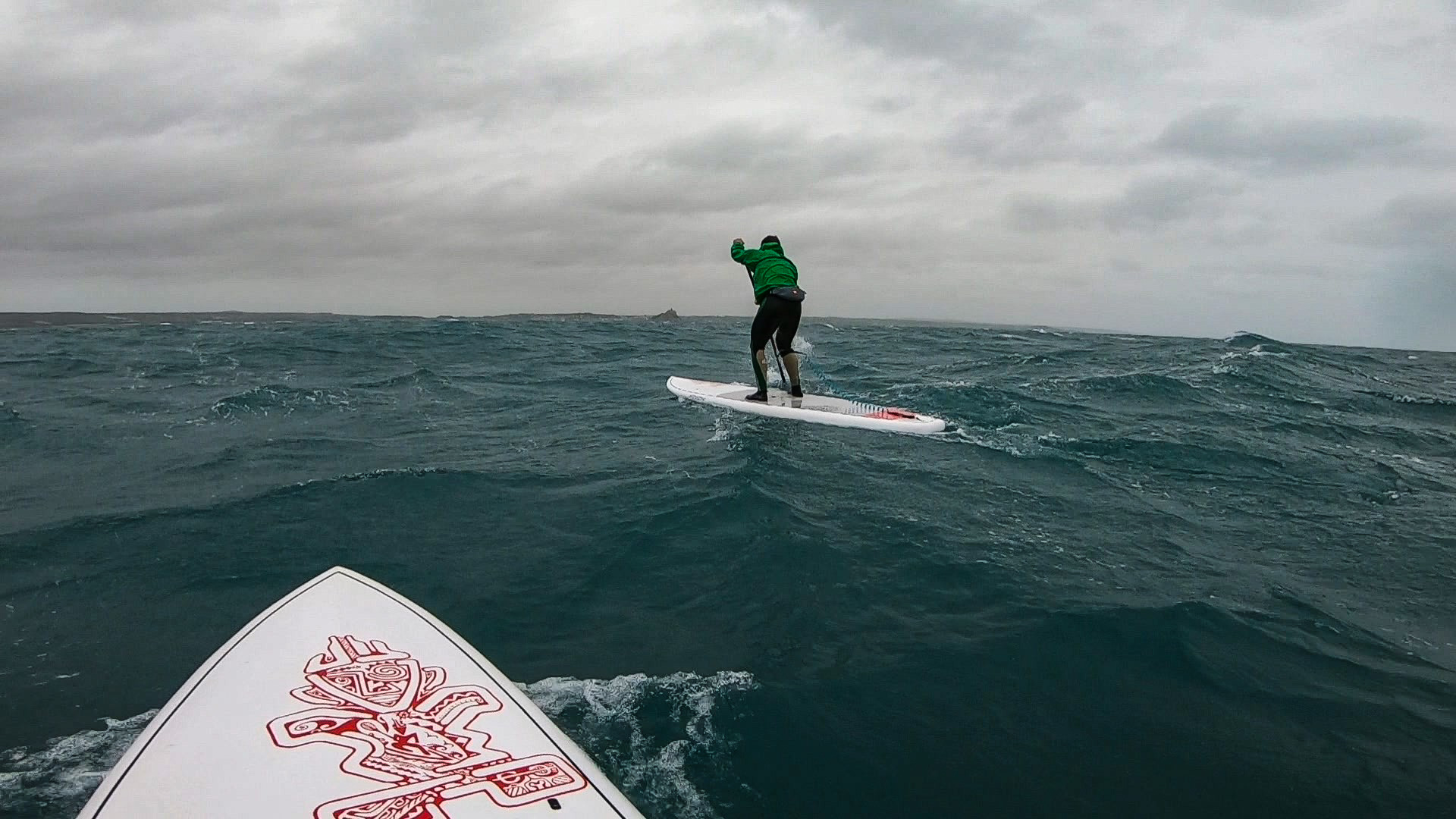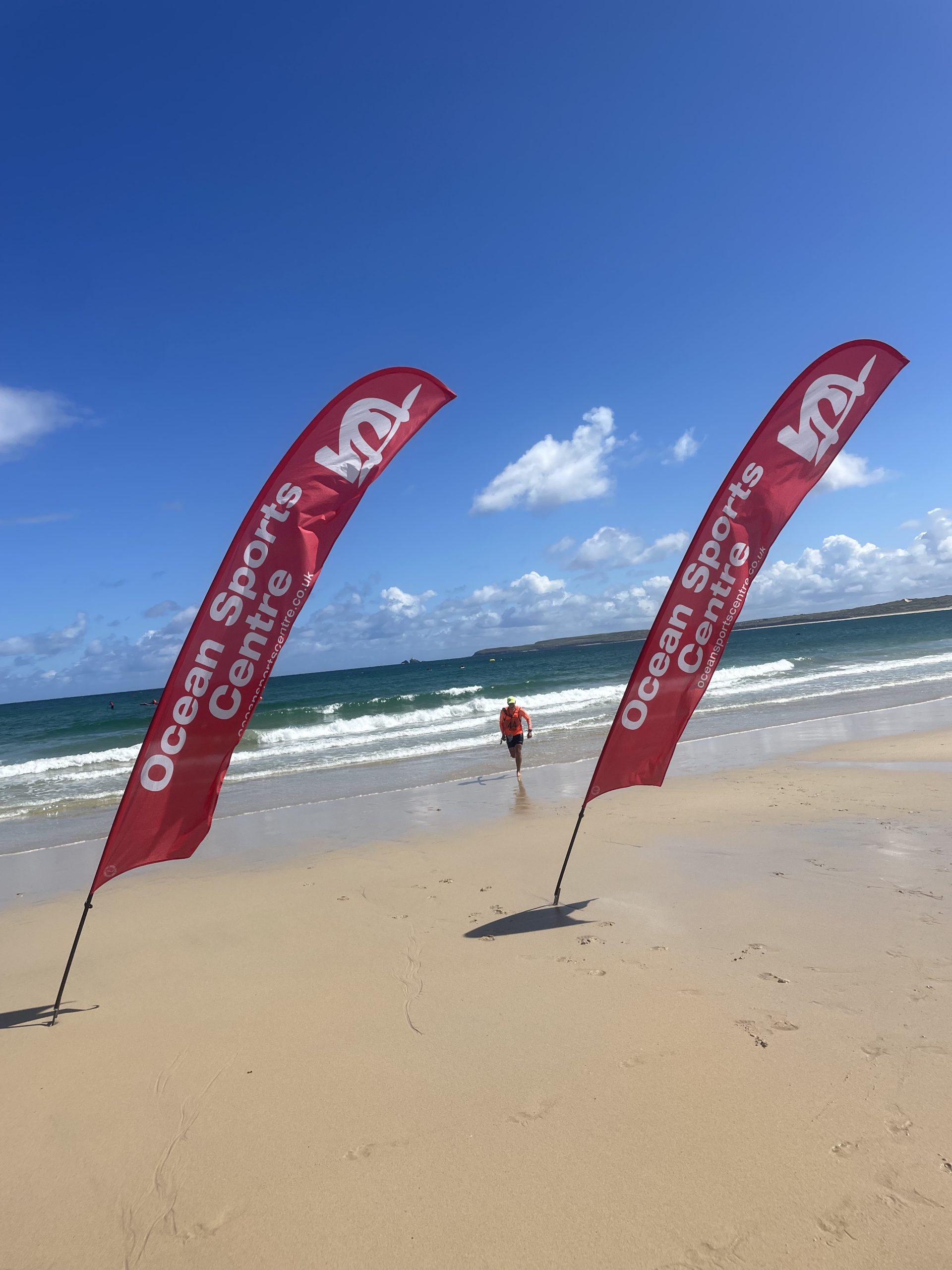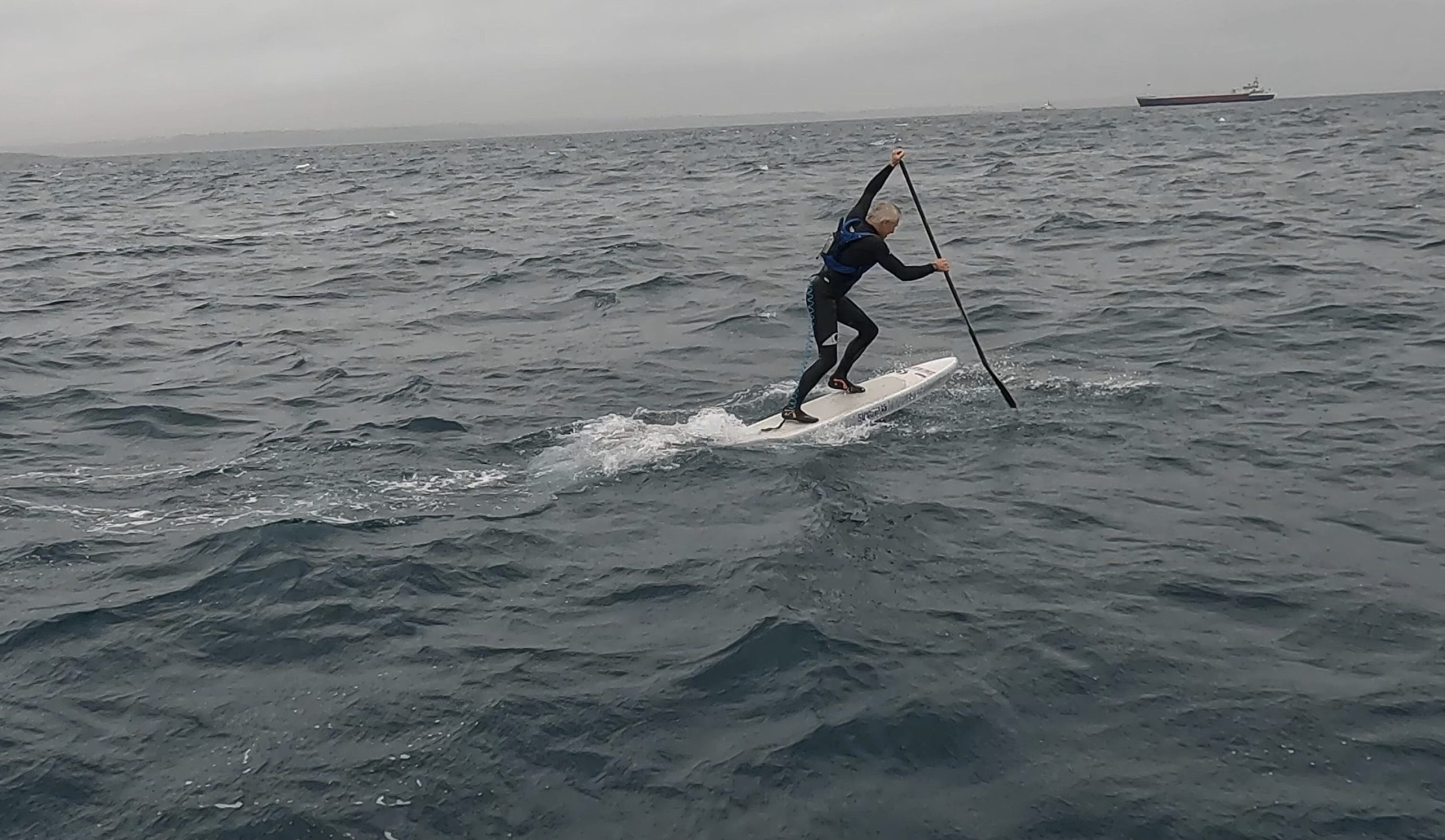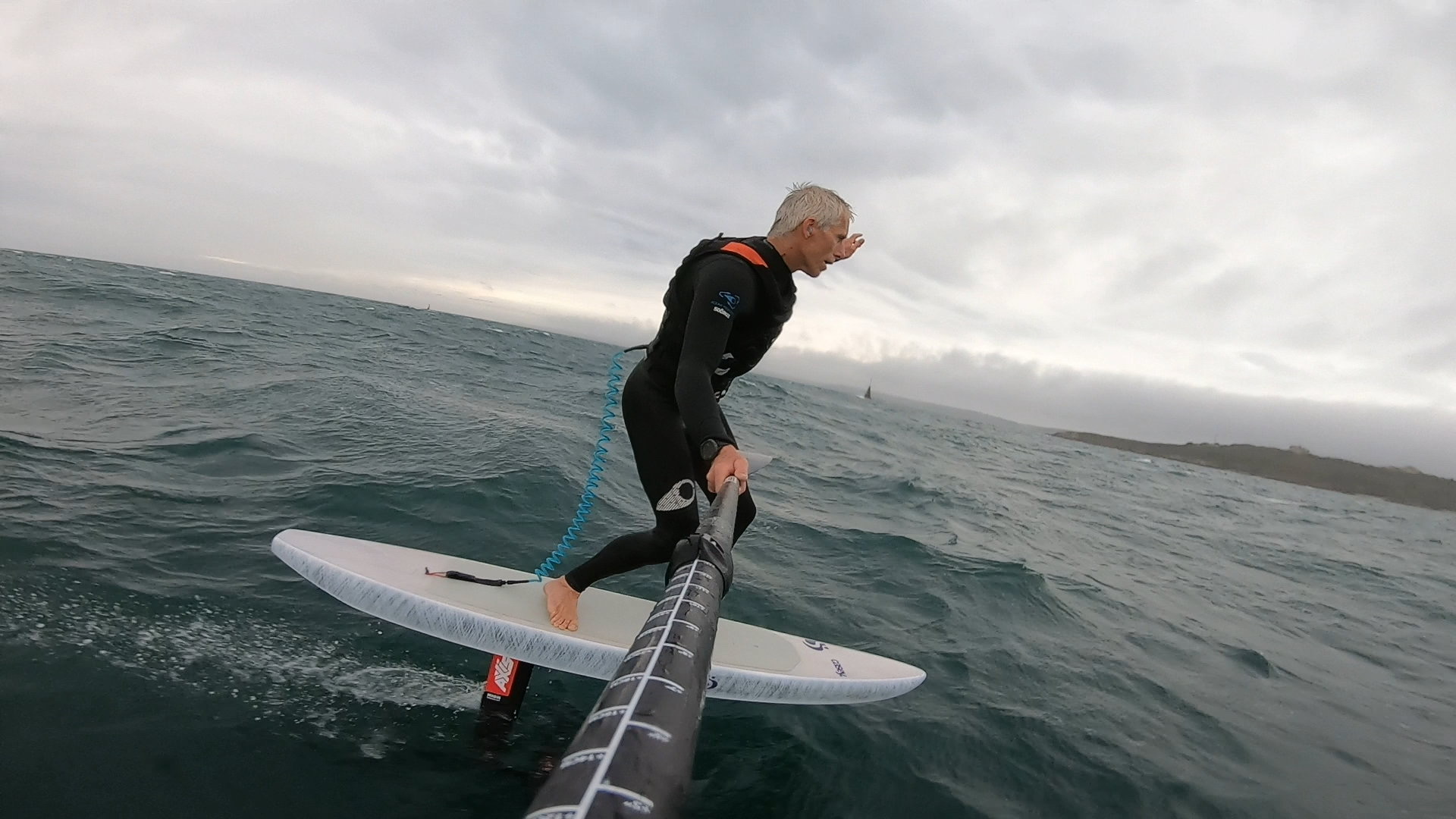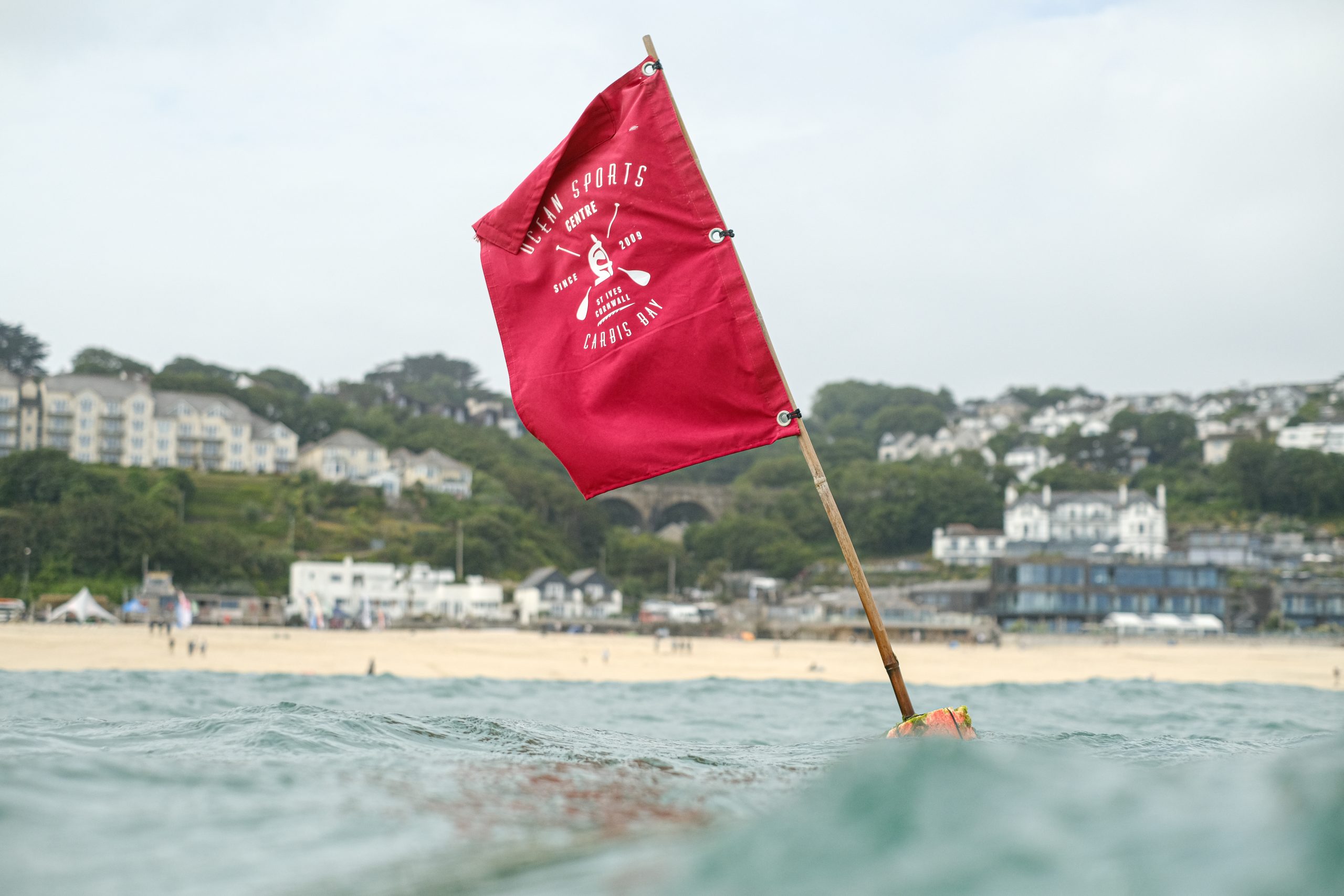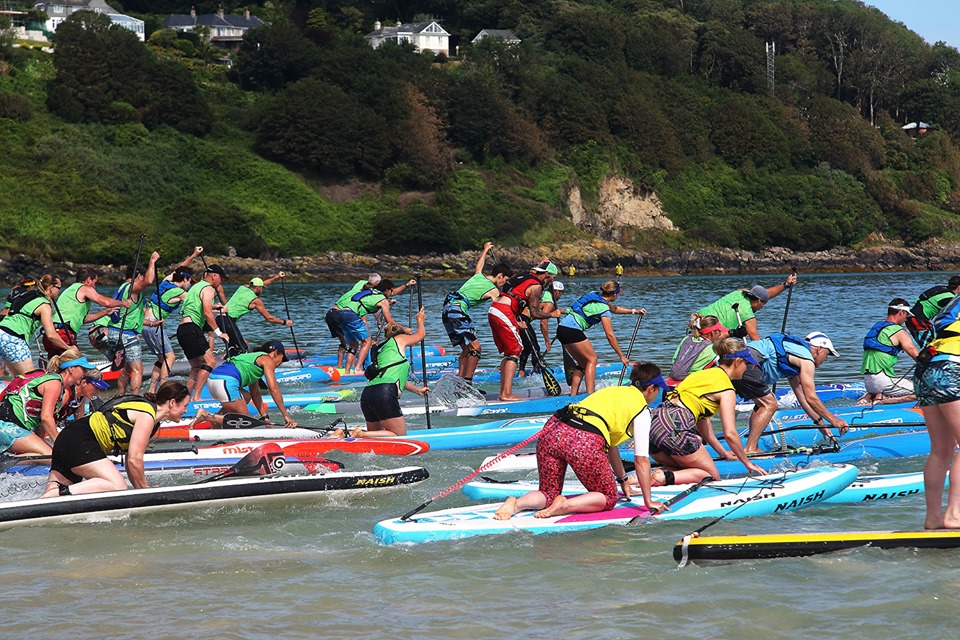Having too much of a good thing is not always a good thing. Storm Ciara was perfectly poised to coincide with the start of the workshop, with her 30 to 45 knots of wind and a six meter swell. We looked like we would be in one of those can can’t we downwinding situations. Still, the smell of freshly served coffee and warm croissants down at the Centre for our welcome breakfast were an ideal way to appraise the sessions ahead.
The goal of our ocean skills clinic is to developing rough water paddling and downwinding skills. Focusing more on the the later as well as becoming more technically efficient paddlers. Quite often the workshop enables paddlers to more efficiently transition from predominantly sheltered or flat water paddling to becoming more effective at gliding down ocean swells. Above all, we share our knowledge in reading the water and weather conditions, helping to form a better concept of how to harness the energy of the ocean and importantly, know when not to go, this weekend would be a great lesson of the latter.
The weekend panned out perfectly. The ease of access and proximity the western peninsular of Cornwall never fails to disappoint, sheltered from many a south westerly gale the conditions ultimately could not have been better. With three paddle sessions, two downwinding, a hearty working lunch of home made soup, thick crusty bread finished off with home made lemon drizzle cake, all crafted by Jill, served to sustain energy levels as we moved from the water to working on the ergo and demystifying the seemingly dark art of downwind paddling.
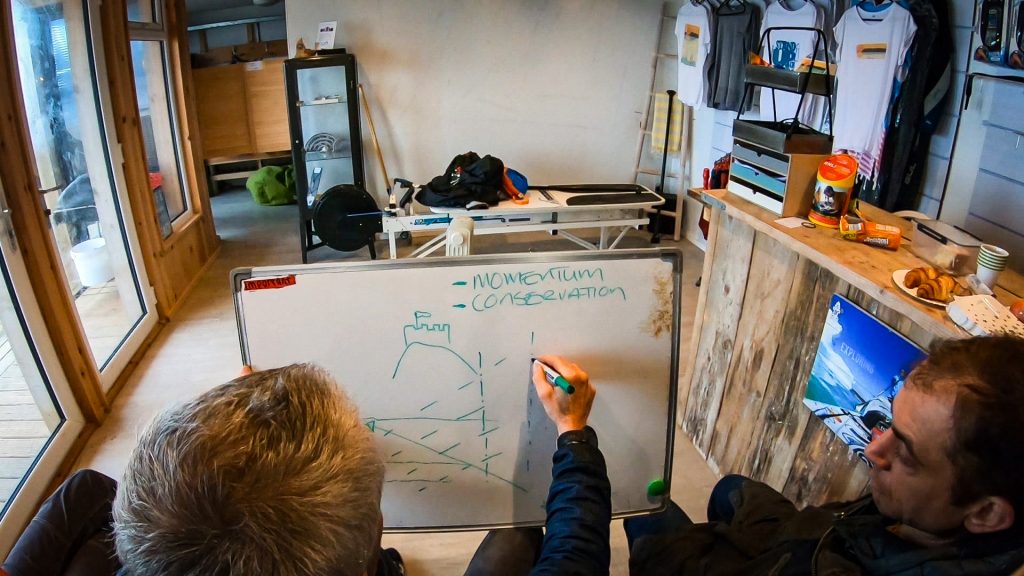
Dad dancing proved a hit on the long slow rides down the Harbour wall. Skills and technique are often used interchangeably, knowing the difference is vital if a paddler is to maximise their capabilities out on the water. The Rampers of St’Ives Harbour provided the perfect conditions to practice what I term board skills, learning to manipulate the movement of the board through the water simply by shifting weight distribution. Dad dancing, is a nod to the old two step shuffle often seen at many a wedding reception, who knew that this could be used as an advanced method of controlling the board on a downwinder!? Once perfected we moved on to less esoteric practices, from optimising critical board speed and differentiating between specialist acceleration stroke mechanics to open water cross wind grinds.
Back on land with a belly full of lemon drizzle cake we were poised to tackle stroke mechanics using our paddle board ergo and video analysis. Building upon paddle technique I shared with SUP International the Mag in an article recently the dry land ergo gave us the ideal platform to develop the ‘Nordic’ technique, optimising efficient application of power while minimising potential incidence of injury. “The ergo, video feedback and practicing the Nordic were spot on” said Sam “seeing yourself paddle almost as you were doing in a controlled environment were the best coaching I’ve had for paddling…having the video to review after the workshop has helped me enormously”.
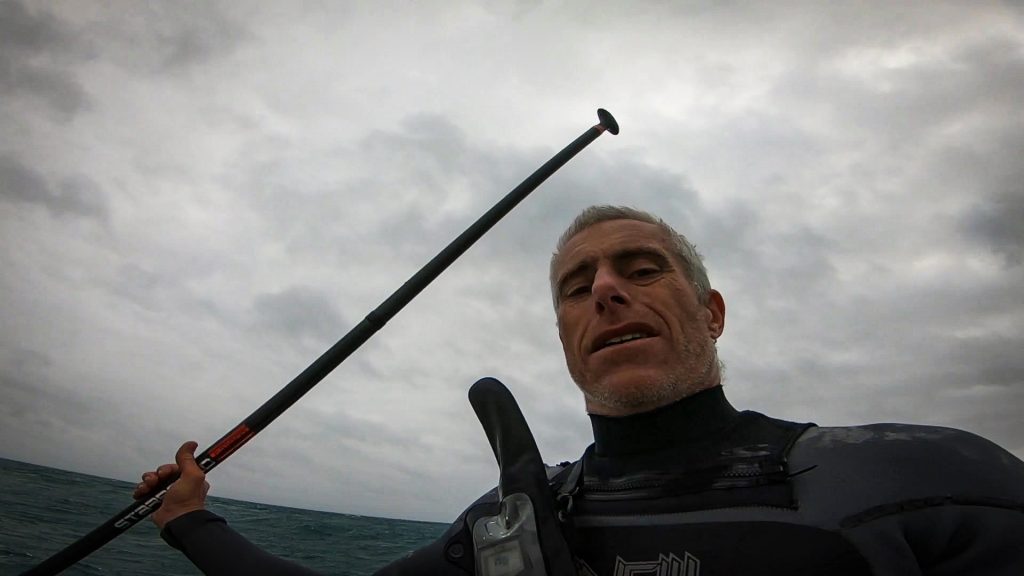
The planned downwind from Mousehole to St. Michaels Mount lined up almost perfectly, giving us the opportunity to hone all of the practical, technical and theory content of the previous sessions. Sizeable lumps of swell were pilling in from the south west with strong winds driving up the coast making for what I call technical downwind paddling, chasing the chop and swinging left down the swells as we went. With a minor adjustment to our planned route we had already dropped our vehicles off at Long Rock to account for the more southerly swell. The paddlers did increasingly well taking some great glides, and the occasional dip, along the route. Learning to make small adjustments early in a downwind to avoid larger ones later on became clearly evident, even in moderate conditions it is easy to overshoot landmarks. Making their final navigational adjustments the group made for the shore, beaming, a little fatigued and hopefully a little more knowledgeable after an enjoyable and full on weekend.
For more information of when our next ocean skills workshop will be run and how to book Click Here
